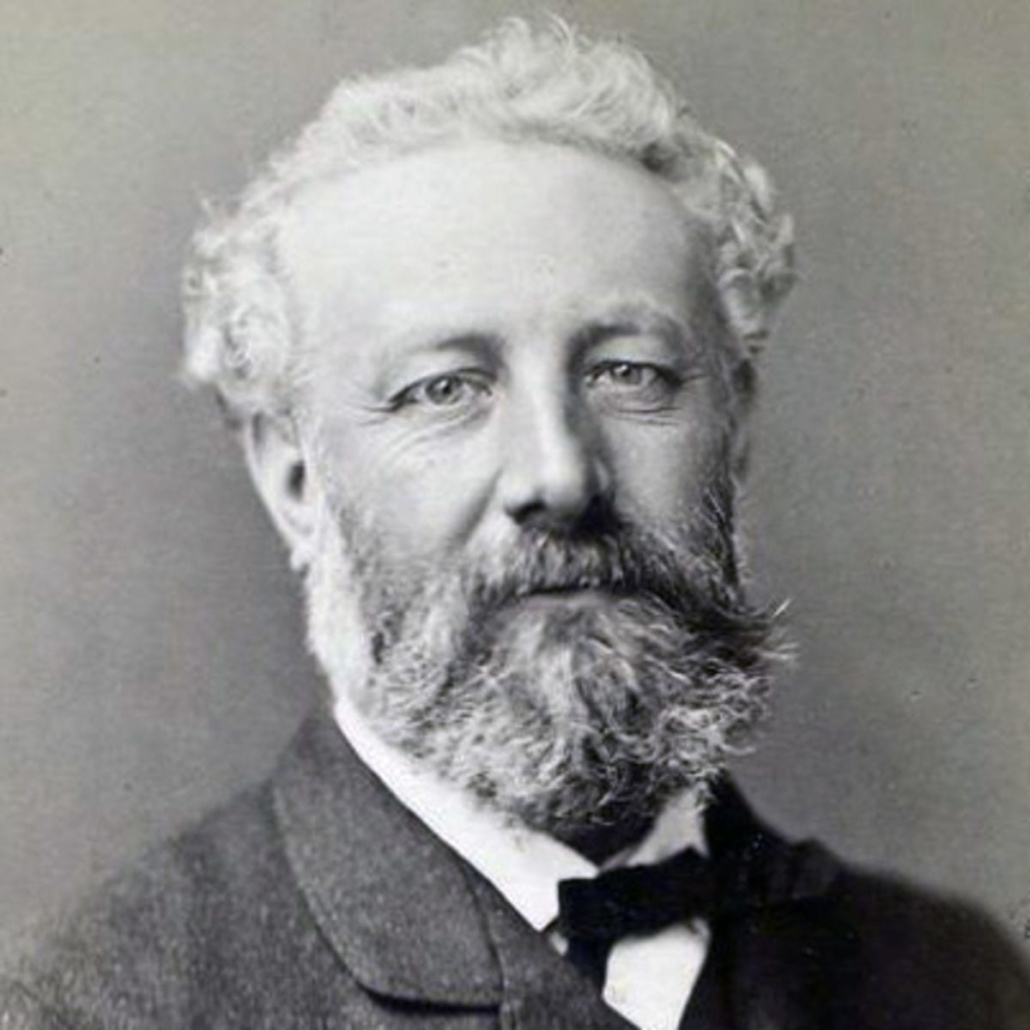Jules Verne (1828-1905)
Jules Verne was a French poet, playwright and novelist but he earns his place on this list of great writers because of his futuristic adventure novels. He has been called the father of science fiction and has had an incalculable influence on the development of science fiction writing. More interesting, perhaps, is his place as a prophet or predictor of technology which wasn’t to be invented until long after his death. He put a man on the moon, including its launch from a Florida launchpad to its splashdown in the Pacific; in 1863 he predicted the internet: Paris in the 20th Century (1863) depicts the details of modern life: skyscrapers, television, Maglev trains, computers, and a culture preoccupied with the Internet. Verne’s various novels predict world wars, weapons of mass destruction, chemical warfare, and the rise of a charismatic German madman intent on world domination.
Verne is one of the world’s most translated authors: his works have been translated into more than 140 languages. A number of films have been made from his novels, starting in 1916 with 20,000 Leagues Under the Sea and The Mysterious Island, From the Earth to the Moon, Journey to the Center of the Earth, and, the most famous, Around the World in 80 Days.
Jules Verne’s influence extends to the world of science and technology, where he inspired generations of scientists, inventors, and explorers. In 1954 the United States Navy launched the world’s first nuclear-powered submarine, named Nautilus, the submarine in 20,000 Leagues Under the Sea. In the 20th and 21st centuries, adventurers like Nellie Bly, Wiley Post, Richard Branson and Steve Fossett have been inspired by Verne’s fictional hero Phileas Fogg by attempting to circumnavigate the globe in record-breaking times.

Portrait of Jules Verne
Verne’s novels have had a wide influence on scientific and philosophical works as well as on fiction writers. Writers known to have been influenced by Verne include Michel Butor, Blaise Cendrars, Roland Barthes, Marcel Ayme, Rene Barjavel, Jean Cocteau, Antoine Saint- Exupery, Jean-Paul Satre and Wernher von Braun. The science fiction author, Ray Bradbury, speaking for literature and science throughout the world, wrote: ‘We are all, in one way or another, the children of Jules Verne.’
Read biographies of all of the 30 greatest writers ever >>



